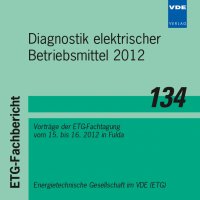Transformer failure diagnosis based on parameter analysis
Conference: Diagnostik elektrischer Betriebsmittel - ETG-Fachtagung
11/15/2012 - 11/16/2012 at Fulda, Deutschland
Proceedings: Diagnostik elektrischer Betriebsmittel
Pages: 6Language: englishTyp: PDF
Personal VDE Members are entitled to a 10% discount on this title
Authors:
Pham, D. A. K.; Pham, T. M. T. (Leibniz Universität Hannover, Schering-Institut, Hannover, Germany )
Safari, M. H.; Kazemi, A.; Borsi, H.; Gockenbach, E. (Leibniz Universität Hannover, Schering-Institut, Hannover, Germany)
Abstract:
There are currently several methods applied to diagnose failures on the active part of power transformers, which can be categorized into two main groups: traditional- and advanced methods. Traditional methods include measurements of transformer ratio, exciting current, magnetic balance, winding resistance, short-circuit impedance etc. Advanced methods consist of tests of Frequency Response Analysis (FRA), Frequency Response of Stray Losses (FRSL), Frequency Response of Leakage Inductance (FRLI) etc. Results derived from these methods reflect transformer parameters in open- and short-circuit configurations. In general, these methods should be performed and combined to enhance the accuracy of failure diagnosis for power transformers. In order to reduce the number of tests while keeping the diagnostic quality, this paper introduces a study case in which a new method based on only the driving-point impedance test analysis is applied to determine transformer parameters from which results of almost above-mentioned tests are recovered appropriately. In addition, the tendency of parameter change in regard with different failures, which may be valuable for diagnosis quality improvement, is also researched. In the study case, experimental measurements are performed on a 200 kVA 10.4/0.4 kV YNyn6 opened distribution transformer which is simulated under healthy- and faulty conditions.


